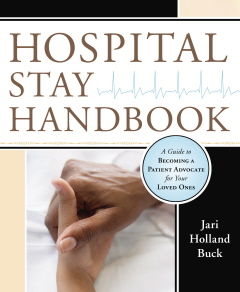What five tips would you have for women to get the best possible health care possible and feel empowered with doctors?
1. Recognize that medicine is considered BIG business today and treat it as such. If you hire a contractor to do something for you in your home, you are paying their bill, directing their attention to your need(s) and requiring them to satisfy you in order to be paid. As such, you are the boss of that contractor. The same goes for a medical provider, whether that provider is a doctor, nurse, hospital, care giver or care facility. You are their boss. They work for you because you pay the bill. Therefore, they have an obligation to “satisfy” you regarding how you are treated. Unlike a contractor (for example, a plumber), they cannot always guarantee the outcome. But they can and should treat you in a way that enables you to learn what they are proposing and why. You have the right to expect good treatment. Anything less, dishonors you.
2. Do your homework! Recognize and give yourself permission to not understand everything you read. Anything you take away from your research gives you greater credibility. Research your:
• disease or condition;
• doctor(s);
• hospital and/or care facility;
• medication(s);
• recommended treatments and side effects.
Many times our powerless feelings are directly related to how much we know. By doing your homework, you will be more comfortable asking questions and the medical community will know they have an educated consumer and treat you as such. If they do not, find another care provider. You have a right to get answers to your questions. If your plumber refused to tell you what they were going to do, why and how much it would cost, wouldn’t you look for another plumber?
3. Propose a partnership with your doctor and tell them what that means to you. They are (or should be) practicing “patient-centered” medicine. That means that, as a patient, we must understand what is going on and participate in decision making. We can no longer afford to be passive and turn these decisions over to another. There are too many problems in and complications with healthcare. If your doctor:
• does not have time for questions;
• cannot or will not explain about your -
− disease or condition;
− medication(s);
− recommended treatments and side effects and/or
will not discuss
− his/her experience in treating it;
− why s/he is recommending a particular hospital and/or care facility,
find another doctor. You have a right to understand the proposed treatment.
4. Be prepared to explain all your present medical conditions and identify all your medications when you interact with the healthcare community. I recommend you create and carry with you at all times a document that lists the following:
• contact information;
• emergency contact and his/her information;
• known allergies;
• current medications, doses and frequency;
• current medical conditions;
• primary care physician and contact information;
• preferred hospital for emergency transport;
• insurance information;
• identify the existence of a Durable Medical Power of Attorney and/or Living Will and/or Advanced Directives.
If your purse looks like mine, you may wonder how all this will fit! You can shrink this information down to an 8-point font and fit it on a portion of a single piece of 8-1/2 X 11 inch paper. Place it where emergency personnel will find it easily and keep it current! When you visit a doctor, simply remove it from your purse and hand it to the intake person. You can’t believe how many, “WOW’s!” I’ve received using this procedure. Those “WOW’s” tend to open doors with doctors because, you are treating them as a professional by being medically professional yourself.
5. Be respectful and firm. The doctors with whom you are dealing have made a lot of sacrifices to appear in front of you today. They are well educated and it is this very education and knowledge that you seek. If you do not get an answer to your questions or receive an answer you do not understand, ask the doctor to explain it again and again until you understand. Many doctors are not used to this insistence and we have to train them. In many ways, this is the same method we use with our children. If our children do not do what we want, we encourage and/or consequent them until they do. If we allow doctors to avoid answering our questions, we are reinforcing bad behavior as well as our own poor self-esteem.
The saying, “Do onto others as you would have them do onto you” fits both sides of the patient/doctor interaction. Everything recommended here requires that you step into your power and take action. When we take action, we feel less anxious and begin to know that we have done everything we can on our own behalf. That’s called, “Living.”
Martha Graham, one of the best-known teachers and choreographers of modern dance, says it like this…
There is vitality, a life force, a quickeningThat is translated through you into action,And because there is only one of you in all time,This expression is unique.And if you block it,It will never exist through any other mediumAnd be lost.The world will not have it.It is not your business to determine how good it is:Nor how valuable it is: nor how it compares with other expressions.It is your business to keep it yours clearly and directly,To keep the channel open.You do not even have to believe in yourself or your work.You have to keep open and aware directlyTo the urges that motivate you.Let them motivate you on behalf of your own health!
© Jari Holland Buck - 2008,
On Your Own Behalf

